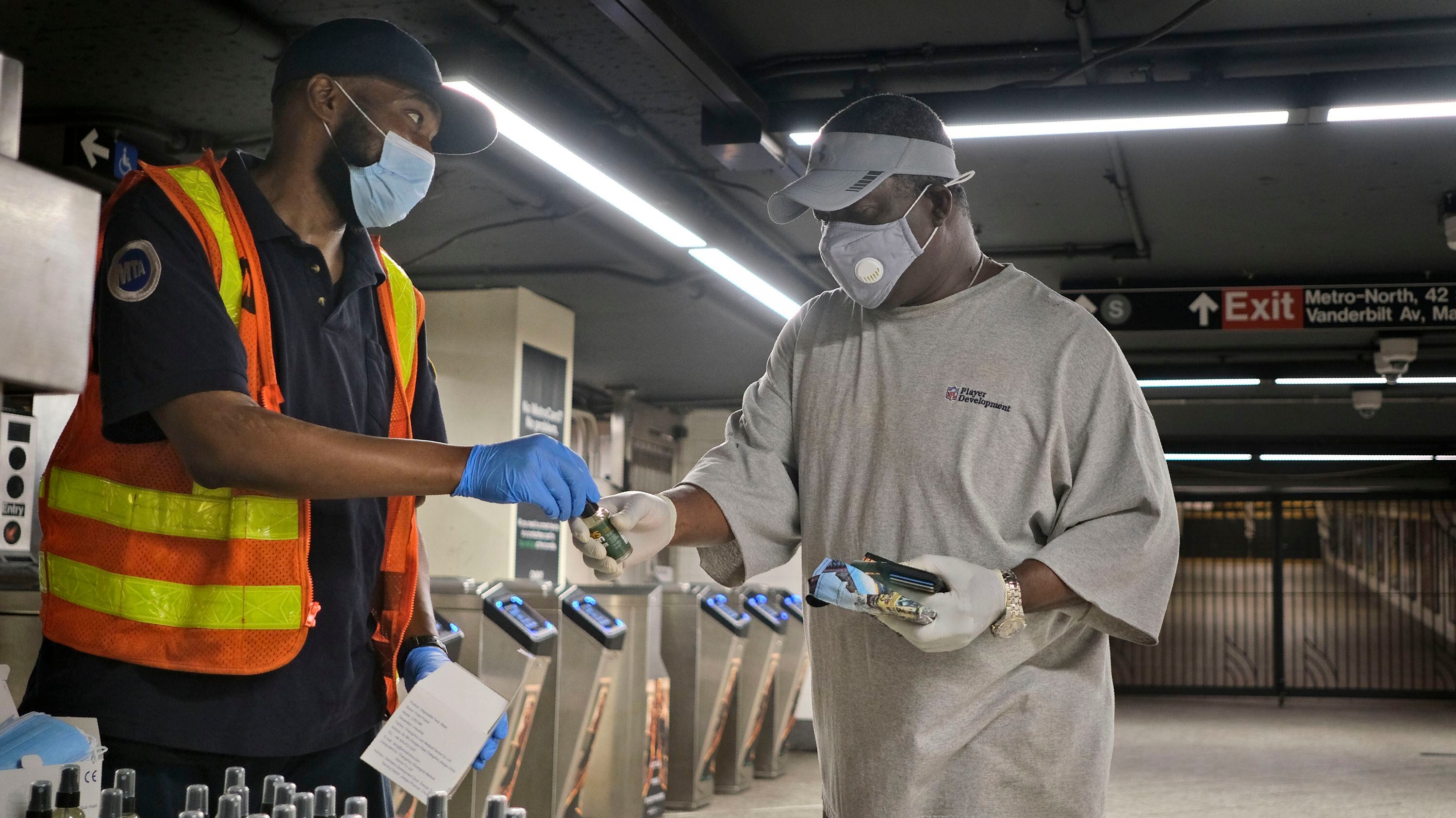As coronavirus tapers off for the moment in New York City, the difficult work of assessing the damages is already underway.
One pressing question for the mass transit-dependent city: Why were transportation workers among the hardest hit frontline professionals, with more than 130 Metropolitan Transportation Authority (MTA) employees dying of coronavirus since March?
In order to better understand what happened and how it can be prevented in the future, Transportation Workers Union (TWU) Local 100 is partnering with the NYU School of Global Public Health to conduct a comprehensive study of its membership.
The study on the impact of coronavirus on a specific profession or industry is the first of its kind, and the hope is that the findings will inform a crop of new best practices.
"We know that this population had higher rates of infection, certainly, than the general population and on par with some of the healthcare workforce," Rachael Piltch-Loeb, an associate research scientist at NYU School of Global Public Health, told Cheddar. "Yet there is relatively little focus on their needs and the control measures that could be in place to protect them."
Known for its research on the long-term health effects experienced by 9/11 first-responders, the NYU research group will try to understand what risk factors and practices contributed to the high rates of infection and death in the TWU chapter.
Ninety members of Local 100, the vast majority of whom came from subway crews, have died of COVID-19. Many of these deaths occurred in the early months of the outbreak when there was a lack of clear safety guidelines as well as personal protective equipment for the subway, bus, and train operators who were exposed to the public daily during the worst days of the outbreak.
"The sense or strong feeling in the very beginning was that the MTA was unprepared," said Pete Donohue, press and media director for TWU Local 100. "The current state is workers feel better about what they're getting, better about the level of cleaning, better about the level of protection, but obviously there is still concern, especially with talk of a resurgence in the fall."
Notably, the MTA banned the use of even personal masks at the outset of the pandemic until it lifted the order in early March following pushback from the union. There was a similar backlash from members about what some saw as a lack of enforcement of the agency's rule requiring passengers to wear a mask.
How these kinds of top-level decisions impact workers is difficult to prove, given the myriad personal and environmental factors that could potentially contribute to an infection, but the point of the study is to wade through these different possibilities and offer helpful conclusions.
"It is very difficult to disentangle one risk factor from another," Piltch-Loeb said. "But we don't want the perfect to be the enemy of the good."
The survey will ask workers about their pre-existing conditions, home environments, rates of infection in the areas where they live, what their specific role is at work, and if they have access to personal protective equipment while on the job.
A pilot study is currently underway and will continue through the summer. Piltch-Loeb said the goal is to continue the research on a longer-term basis if additional funding is provided.
"These issues aren't going away," she said. "So we're going to be working closely with TWU over the next couple of months, hopefully, years to think through best practices to limit the risks for transit workers."
For the moment, however, TWU is pushing ahead with a 10-point plan for the city's transit workers that includes ramped up testing and tracing, temperature checks, a stockpile of personal protective equipment, additional hazard pay, and continuing the strict policy of banning passengers who don't wear masks.
The goal of the study is to give these recommendations a basis in hard data and the support of a respected research institution.
"If we have these, frankly, world-class epidemiologists, after a comprehensive study, backing up some of the things we're calling for or coming up with new initiatives, we think that will greatly improve our ability to advocate for those changes on behalf of our members," Donahue said.



